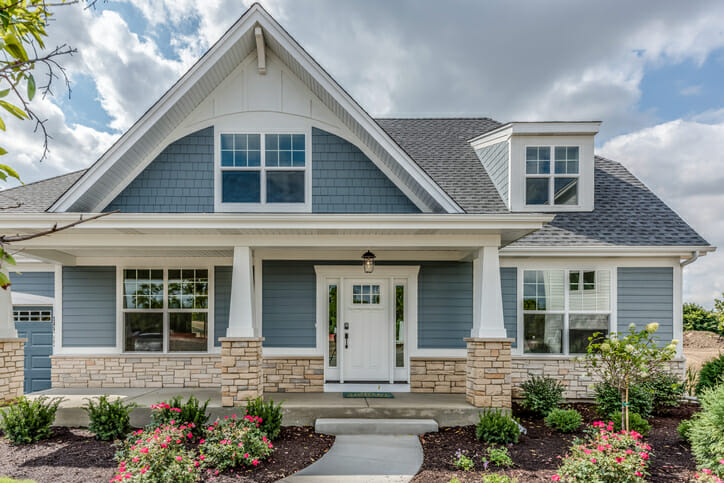Putting a house in a trust involves transferring ownership from your name into the name of the trust, which is managed according to the terms you set. People often choose this route to streamline the transfer of property after death and avoid probate. Knowing how to put a house in a trust starts with selecting the right type of trust, such as revocable or irrevocable, and working with an attorney to draft the necessary documents. Once the trust is created, the deed must be retitled to reflect the trust as the new owner.
Consider working with a financial advisor if you need help setting up an estate plan or managing inherited money.
What Is a Property Trust?
A property trust is a legal arrangement that allows you to transfer ownership of a home or other real estate to a beneficiary. It formalizes the process of passing down property and provides more certainty than a verbal agreement or a simple will. Property trusts can be either revocable or irrevocable, each with distinct features.
A revocable trust allows you to change the terms or remove assets while you’re alive, offering flexibility. An irrevocable trust, by contrast, generally locks in the terms and may shield the property from creditors, though courts can still challenge transfers made to avoid legal claims.
Why Do People Create Property Trusts?

There are three common reasons that someone would want to place a house (or other type of personal residence), avoiding probate, privacy and simplicity.
Avoiding Probate
People who put a house in a property trust do so because they want to avoid their home going into probate, which is the judicial process in which property not in a trust goes through a court when the owner passes away. During probate, debts or taxes owed on the property are paid. And then, if there is no will outlining what should be done with the property, it will be distributed according to your state’s laws.
Generally, if you don’t leave your home in a trust and mention who should get it in your will, your property will usually go to a spouse or child. And failing that, the next closest would be a living relative, such as a parent, sibling, nephew or niece. (If no living relative can be found, the state will probably inherit the property.)
While your home may end up with your desired beneficiary without your home being in a trust, all of this takes a lot of time and expense. This is largely due to legal fees and court costs. You likely save your beneficiaries a lot of frustration, time and expense by putting your home in a trust.
The cost of probate is a significant part of why people put their home or homes in a trust. The probate costs are borne by the estate and thus the beneficiaries. Beneficiaries also can be stuck with paying estate expenses, such as property taxes on a home that goes through probate.
Keeping Your Financial Affairs Private
Another benefit to creating a property trust that you may have not considered: when a home is in a trust, it’s kept private. If your home is passed onto your descendants through probate, that will be public knowledge.
And family dynamics can be complicated. You might be worried about relatives feeling you favored one over the other. Or you simply don’t want everyone to know what happened to your property after your death. That’s another reason to put your home in a trust.
Simplifying the Trustee’s Work
Being the executor of an estate is difficult work. This is especially true if it’s fallen to a family member who doesn’t do this as their day job. If you want beneficiaries to have your home, putting it in a property trust can simplify matters for the trustee.
Managing an estate can be complicated if the home you want to give to a beneficiary is in another state. For example, if you’re leaving a vacation home in Arizona to your family, but you live in Indiana, the executor of your estate or successor trustee – whoever is managing your trust – will be navigating each state’s probate process.
How to Put Your Home in a Trust
Placing a home in a trust involves several legal and administrative steps. While it’s possible to use estate planning software, many people work with an estate planning attorney, a financial advisor and sometimes a certified public accountant (CPA) to navigate the process and tax implications. For example, if the property generates rental income, that income must be reported on your tax return. Property taxes will still apply whether the home is held in a trust or in probate.
Here’s how the process typically unfolds:
- Create the trust document: Either through software or with the help of an attorney.
- Name a trustee and beneficiaries: The trustee will manage the trust, and the beneficiaries will eventually receive the home.
- Notarize the trust document: This makes the trust legally valid.
- Draft a new deed: The deed must transfer ownership of the property from your name to the trust.
- Notarize and record the new deed: This step updates the official property records.
- Formally transfer the property into the trust: This completes the ownership change.
Consider Working With a Professional
An experienced attorney or advisor can help identify potential complications based on your situation. For example, if you’re planning to refinance your mortgage soon, it may make sense to wait before placing your home in a trust. While mortgage lenders generally allow refinancing of homes held in trusts, some may ask that the property be temporarily removed from the trust before refinancing and then retitled afterward.
Although it’s possible to handle the process on your own, a professional can help you avoid mistakes and deal with edge cases—such as coordinating with lenders or addressing title issues—that can be difficult to manage without legal guidance.
Bottom Line

Setting up a trust for your home can offer a more structured way to transfer property, reduce court involvement, and limit complications for those managing your estate. While the process requires careful attention to legal details, it often results in a cleaner handoff of ownership and fewer delays. With the right planning, a trust can reflect your wishes while minimizing unnecessary costs and administrative hurdles.
Estate Planning Tips
- Planning out your entire estate can seem overwhelming and difficult. But a financial advisor who specializes in estate planning can help. SmartAsset’s free tool matches you with vetted financial advisors who serve your area, and you can have a free introductory call with your advisor matches to decide which one you feel is right for you. If you’re ready to find an advisor who can help you achieve your financial goals, get started now.
- If you have a sizable estate, estate taxes on either the state or federal level could be hefty. However, you can easily plan ahead for taxes to maximize your loved ones’ inheritances. For example, you can gift portions of your estate in advance to heirs, or even set up a trust.
Photo credit: ©iStock.com/PC Photography, ©iStock.com/Capuski, ©iStock.com/Wirestock
